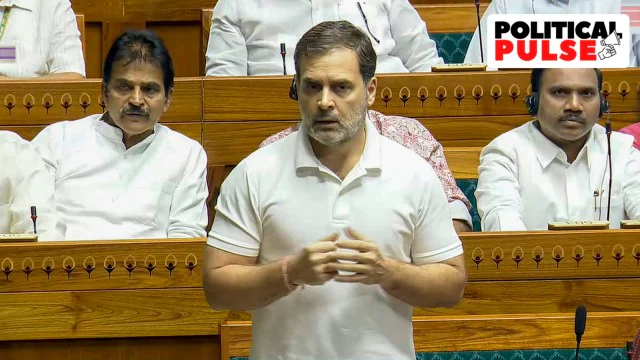
Rahul Gandhi, the newly appointed Leader of the Opposition (LoP) in the Lok Sabha, has assumed a significant role in Indian politics.
As the first LoP in the lower House of Parliament since 2014, Gandhi is entitled to various allowances and privileges under The Salary and Allowances of Leaders of Opposition in Parliament Act, 1977.
Gandhi will receive a monthly salary and daily allowances equivalent to those obtained by Members of Parliament, as specified in Section 3 of the Salary, Allowances and Pension of Members of Parliament Act, 1954.
This includes a monthly sumptuary allowance of Rs 2,000 and a constituency allowance similar to that MPs receive, as specified in Section 8 of the Act.
In addition to these financial benefits, Gandhi will also receive a travel allowance for himself and his family members for travel to and from Delhi, equivalent to that of a Union Cabinet Minister. This includes travel and daily allowances for official tours, applicable for all modes of transportation.
As LoP, Gandhi will also be exempt from income tax on certain perquisites and enjoy free admission and treatment at government-maintained hospitals for himself and his family.
As the opposition leader, Gandhi can also engage with foreign dignitaries during official visits. He will be accorded a designated seat in the front row of the House, to the left of the Chair, and enjoy certain privileges on ceremonial occasions, such as escorting the Speaker-elect to the rostrum.
Gandhi will also sit in the front row during the President’s address to both Houses of Parliament.
The position of the LoP is officially described in The Salary and Allowances of Leaders of Opposition in Parliament Act, 1977.
The Act describes the LoP as a “member of the Council of States or the House of the People, as the case may be, who is, for the time being, the Leader in that House of the party in opposition to the Government having the greatest numerical strength and recognised as such by the Chairman of the Council of States or the Speaker of the House of the People”.
The LoP in the Lok Sabha enjoys certain privileges in the Salary and Allowances of Leaders of Opposition in Parliament Act, 1977.
The LoP is entitled to receive a monthly salary and daily allowances at the rates specified in “Section 3 of the Salary, Allowances and Pension of Members of Parliament Act, 1954, concerning Members of Parliament”, including a monthly sumptuary allowance of Rs 2,000.
As the LoP, Gandhi will be crucial in holding the government accountable for its actions. He will lead the opposition in debates, discussions, and other parliamentary proceedings.
Gandhi’s experience as a parliament member and understanding of the political landscape will be invaluable.
The LoP also has a critical role in appointing key officials, such as the CBI director and Chief Election Commissioners.
Gandhi will work closely with other opposition leaders to ensure the government is held accountable for its actions.
In addition to his responsibilities as LoP, Gandhi will also be responsible for leading his party, the Indian National Congress. He will work to strengthen the party’s organisation and prepare it for future elections.
As LoP, Gandhi will also have access to various resources and facilities. He will have a dedicated office in the Parliament complex, with a staff team to support him. He will also have access to a residence in the National Capital, with staff quarters and other facilities.
Gandhi’s appointment as LoP is significant not only for the Indian National Congress but also for the country as a whole. It marks a new chapter in Indian politics, with a young and dynamic leader at the helm of the opposition.
The LoP plays a vital role in Indian democracy, serving as a check on the power of the government. Gandhi’s appointment to this position is a testament to his leadership skills and ability to work with other parties to achieve common goals.
As LoP, Gandhi will ensure the government is accountable for its actions. He must work tirelessly to promote the people’s interests and ensure that the government is transparent and responsible.





